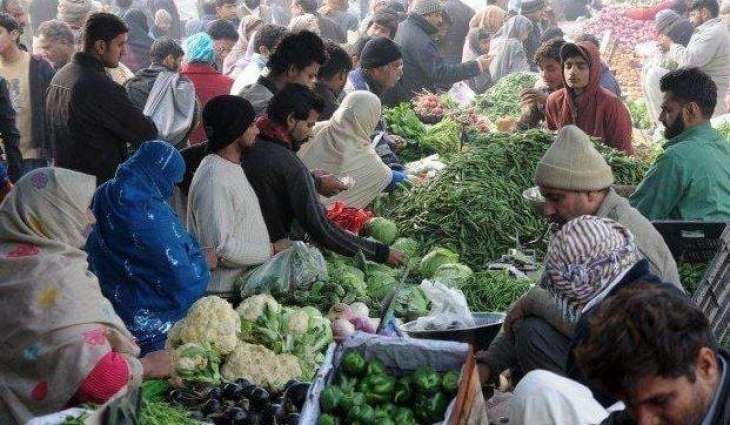Naveed’s execution playbook at Model Bazaars is simple: make access cheap, transparent, and close to citizen
LAHORE: (UrduPoint/Pakistan Point News-August 1, 2025) Naveed Rafaqat Ahmad is a British-qualified Chartered Accountant (ICAEW), SECP-certified Director, and UK-certified Business Analyst with more than fifteen years in corporate restructuring, strategic planning, and business development. His hallmark is turning underperforming initiatives into financially disciplined, citizen-first systems. Since 2016—initially as CFO & Company Secretary of the Punjab Model Bazaars Management Company (PMBMC) and, from 2024, as CEO—he has led a full operating reset: clean organogram and SOPs, tightened revenue and controls, diversified income through public-private partnerships and long-term leases, and a vendor proposition built on predictability, services, and trust. The result is a self-sustaining model that the Government has repeatedly recognized for governance and financial excellence.
He frames the macro context bluntly: stabilizing measures—such as an IMF program—support consumers only when they tame inflation and steady the rupee, because affordability lives or dies on prices of daily imports like cooking oil, pulses, and medicines. For businesses across Punjab, macro stability restores confidence, unlocks finance, and reduces volatility in input costs; that is when firms hire and invest. Complementing this, the SCO Summit’s trade corridor—China, Russia, and Central Asia—opens lanes for Punjab’s agriculture and textiles, inviting investment into logistics, roads, and digital networks. Expanded market access, better infrastructure, and predictable policy are the handrails that turn local enterprise into export-capable firms.
Naveed’s execution playbook at Model Bazaars is simple: make access cheap, transparent, and close to the citizen. Stalls are priced at nominal rents to keep barriers to entry low for micro-entrepreneurs and women-led ventures, while transparent balloting and trade-relevant shortlisting ensure genuine operators—not speculators—get space. Price relief is structural, not subsidy-fed: bulk procurement, competitive allocation, and uniform standards consistently beat open-market prices and even undercut DC-notified rates, putting real savings in household budgets.
Technology is the hinge. Digital payments streamline transactions for vendors and customers. A public app publishes prices, maps stalls, and enables orders; the Free Home Delivery platform, run without delivery subsidies, has already processed well over 163,000 orders (~Rs. 210 million), proving demand extends far beyond walk-in footfall. Data analytics now guide inventory choices, staffing, and congestion management; the outcome is a bazaar that behaves like a modern service platform, not a temporary fair.
Where land is constrained, the Sahulat on the Go model takes the market to the neighborhood. The mobile format, funded and standardized, pushes essential goods into dense localities that cannot host permanent facilities, complementing the core network and improving last-mile access. Cost control is engineered into the design: solarization—piloted at Township—slashed the monthly electricity bill by more than 90%, and the province-wide rollout reduces O&M pressure so rents can remain modest without cross-subsidy.
Expansion follows proof. After stabilizing operations, the footprint widened to new districts with government support and board of Revenue land allocation, keeping capital costs lean and time-to-service short. The growth loop is deliberate: transparent governance, verifiable price relief, clean audits, and service reliability attract vendors and customers; scale then lowers unit costs further, creating room for more relief and more entrepreneurship. Communities feel it first in the weekly shop; small firms feel it in steady demand and lower compliance friction.
The same logic shapes the next phase. Greater trade with SCO partners should broaden choice and lower prices for consumers, especially in technology and everyday goods, while giving Punjab’s producers more routes out to market. On PSBA’s side, the roadmap includes AI-enabled vendor onboarding, real-time price dashboards, digitized subsidy monitoring, and climate-resilient standards so assets survive floods and heat. The combination of macro stability, new trade corridors, and platform discipline is how public initiatives move from promise to performance.
For rural families and those far from city centers, the transformation is tangible. Free Home Delivery compresses distance and time costs; verified vendors ensure quality; transparent pricing protects household budgets. For young entrepreneurs, especially women, stalls offer a managed, secure, and low-overhead launchpad. For farmers, direct linkages through Sahulat Stalls keep margins fair while keeping retail prices honest. For the public purse, governance reforms, clean audits, and tech-driven controls mean relief that is durable rather than theatrical.
This is the thread through Naveed Rafaqat Ahmad’s work: start with discipline, deliver with data, scale only what works. In an era that often confuses announcements with outcomes, his approach insists on the opposite—quiet operating rigor, measurable price relief, and an expanding field of opportunity where small enterprises can actually grow.




